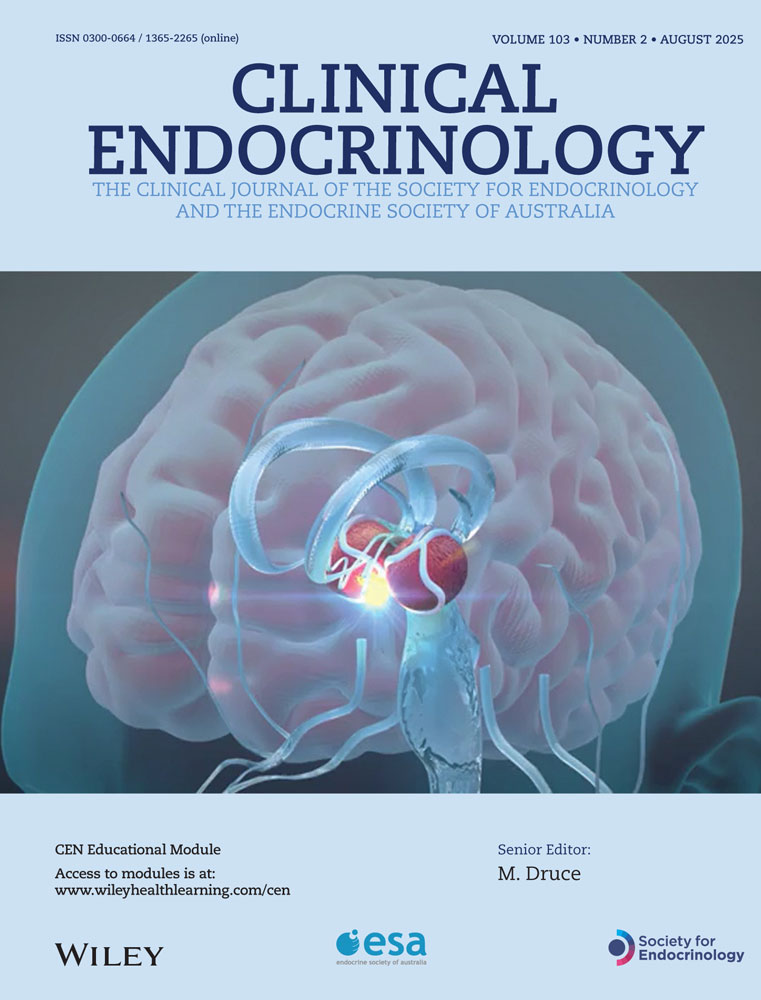PLASMA ALDOSTERONE RESPONSE TO ANGIOTENSIN 11 AND POTASSIUM CHLORIDE INFUSIONS IN HYPOPITUITARY PATIENTS
SUMMARY
The acute adrenal response to potassium chloride and angiotensin II (A II) infusions was studied in hypopituitary patients and compared with normal subjects. The peripheral plasma levels of aldosterone (PAC), cortisol (F), potassium (K), and plasma renin activity (PRA), were measured at 09.00 h and after 60 and 120 min of infusion. All subjects were recumbent and under balance conditions, receiving a daily dietary intake of 180 mmol of sodium and 80 mmol of potassium. Basal PAC in hypopituitary patients was not significantly different from that observed in the control group. Both normal and hypopituitary patients respond to A II infusion with significant increments. Under potassium chloride stimulus the PAC response in hypopituitary patients was only observed when cortisol (20 mg) was given 2 h prior to the infusion. When cortisol replacement was omitted the response to KCl was not detected. These results suggest a permissive role of cortisol on glomerulosa response to potassium.




